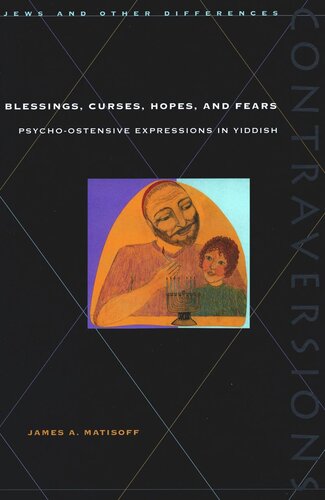

Most ebook files are in PDF format, so you can easily read them using various software such as Foxit Reader or directly on the Google Chrome browser.
Some ebook files are released by publishers in other formats such as .awz, .mobi, .epub, .fb2, etc. You may need to install specific software to read these formats on mobile/PC, such as Calibre.
Please read the tutorial at this link: https://ebookbell.com/faq
We offer FREE conversion to the popular formats you request; however, this may take some time. Therefore, right after payment, please email us, and we will try to provide the service as quickly as possible.
For some exceptional file formats or broken links (if any), please refrain from opening any disputes. Instead, email us first, and we will try to assist within a maximum of 6 hours.
EbookBell Team

4.1
20 reviewsIn this delightful book, the author enumerates and classifies the formulas Yiddish speakers use to express their emotions. It is a rarity among scholarly books, for it brings joy while it teaches; it makes us smile, sometimes roar with laughter, while it develops the most rigorous linguistic argumentation. The author analyzes the many kinds of Yiddish "psycho-ostensives"—ranging from blessings and thanks to lamentations and curses. To a person who mentions something horrible you can say: Zalts dir in di oygn, fefer dir in noz! ("Salt into your eyes, and pepper into your nose!"). Or to a child you might tenderly murmur: A gezúnt dir in yeder éyverl! ("A health to all your little body-parts!"). The author illustrates how these formulas can be used to fulfill social conventions, to keep away evil, to show off—or even to deceive the listener. Comments [1999] "I have known and profited from this book for many years, and its interest for linguistics and Yiddish studies has grown steadily. The book will have three audiences: specialists in Yiddish; linguists, psychologists, and anthropologists who are interested in the emotional side of language; and general linguists familiar with Matisoff's outstanding contributions, both witty and insightful, in other linguistic fields." —William Labov, University of Pennsylvania "Matisoff's book was pathbreaking, innovative, and crucially important when it was first published and remains so today. It is as relevant as it was then, if not more so. Matisoff is a consummate scholar and also an excellent writer: clear and weighty but also whimsical and witty." —Deborah Tannen, Georgetown University